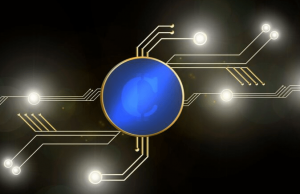Being know as the most powerful infrastructure for dapps( Decentralized application) , the blockchain based EOS is able to facilitate hosting, development as well as running commercial level decentralized applications on its platform by supplying all the needed core functionalities. These allows users and businesses to create blockchain applications which are similar to other web-based applications. Due to the act that it possessed a strikingly similar functions with Ethereum, some of the EOS supporters dubbed it as the “Ethereum Killer”.
History of EOS
- A private company known as Block.one unveiled EOSIO Single-Threaded Application Testnet (EOS STAT) which is a testing environment available to the public during BlockShow Asia on the 29th of November 2017.
- The Whitepaper of EOS which contains all the plan for EOS was published on the same year
- one further developed the EOSIO platform and successfully released the platform in the form of open source software on 1st of June 2018.
- The initial distribution of the native token ( EOS token) was done on Ethereum platform to ensure wide distribution during the launch of blockchain. The extensive network of Ethereum provides a distribution channel which allows individual who obtained and own the token can start utilising them once the blockchain software is released and live. Nearly one billion tokens was sold by Block.one on the platform.
Statistics
Out of all tokens sold, 10% were reserved for Block.one and 20% were sold within the first 5 days of the 341 days sales on Ethereum platform, which is a very impressive statistic. The remaining 70% of tokens were to be sold and produced at market value. A total of 170 million USD were raised during the ICO and EOS is now the fifth leading cryptocurrency in the world by market cap during the time of writing.
What makes up EOS ?
The entire EOS ecosystem is made up of two crucial part, the system and the cryptocurrency used in the system. The system is known as EOS.IO and it is analogous to the operating system of a computer. EOS.IO is responsible in managing and controlling the EOS blockchain network. EOS.IO is unique in a way its architecture allows the scaling of dapps in both vertically and horizontally. The EOS network uses EOS token as the cryptocurrency.
By just holding the EOS coin, developers are allowed to build and execute their own decentralized applications using the network resources. Other users who intend to just hold the EOS token without building or running any apps are also presented with an opportunity to rent their bandwidth to other users who are in need of it.
To know more about EOS, the PDF of EOS whitepaper as well as a short youtube video explaining EOS whitepaper are attached below.
The post Eosio (EOS) Whitepaper appeared first on Cryptoverze.




